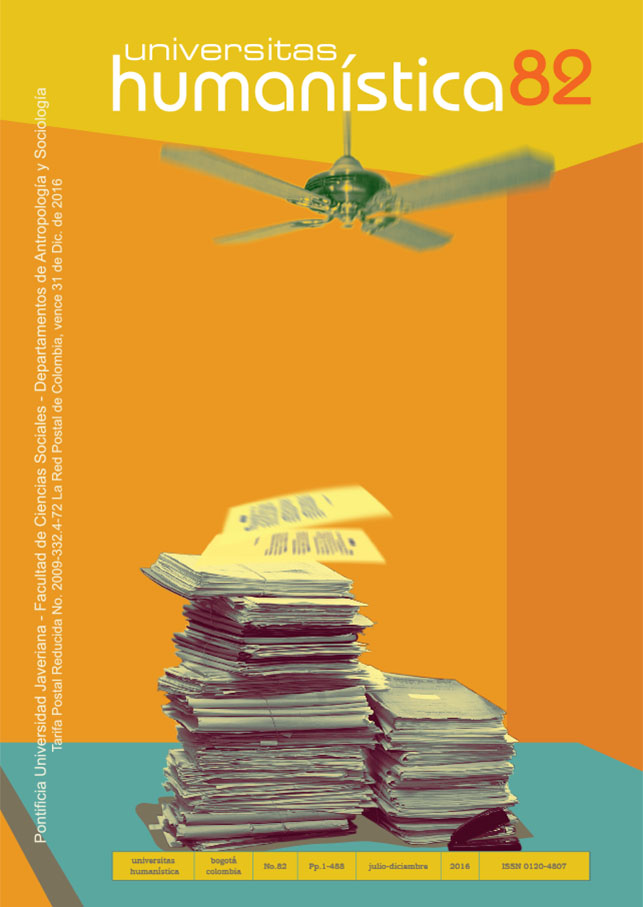Resumo
Entre as décadas de 1950 e 1980, as instituições estatais colombianas experimentaram um acelerado processo de modernização que resultaram na reorganização burocrática e as políticas públicas que tocaram o fundo da sociedade e marcaram o futuro da relação do governo com os cidadãos. Neste artigo vamos focar a atenção em uma política energética de cozedura com gasolina que atingiu dolorosamente à sociedade colombiana uma vez que gerou mais de quatro décadas de pessoas queimadas. O texto inclui um estudo cuja temática e abordagem articulam perspectivas sócio-antropológicas que evidenciam os custos físicos e morais da modernização do país. Procuramos desenvolver um enfoque crítico a partir da noção de dispositivo sobre o fenómeno até hoje pouco estudado na Colômbia. Para tal fim realizou-se uma análise qualitativa que teve como fontes principais a imprensa da época, entrevistas a atores sobreviventes e dados estatísticos.

A revista Universitas Humanística encontra-se registada sob a licencia Creative Commons Versão 4.0 Internacional. Portanto, esta obra pode se reproduzir, distribuir e comunicar publicamente em formato digital, sempre que dado o crédito apropriado para os autores e a Pontificia Universidad Javeriana. Permite-se citar, adaptar, remixar, transformar, autoarquivar, republicar e criar a partir do material, para qualquer fim, mesmo que comercial, sempre que indicado apropriadamente o nome do criador, provido um link para a obra original e indicado se mudanças foram feitas. A Pontificia Universidad Javeriana não retém os direitos sobre as obras publicadas e os conteúdos são responsabilidade exclusiva dos autores, os quais conservam seus direitos morais, intelectuais, de privacidade e publicidade.
O aval sobre a intervenção da obra (revisão, correção, edição, tradução, formatação) e a subsequente difusão disponibiliza-se através de licença de uso e não através de transmissão de direitos, o que representa que a revista e a Pontificia Universidad Javeriana são isentas de qualquer responsabilidade que puder se derivar de uma prática ética pobre por parte dos autores. Em consequência da proteção fornecida pela licença de uso, a revista não fica na obrigação de publicar retratações ou alterar informações já publicadas, a não ser que a errata seja decorrente do processo de gestão editorial. A publicação de conteúdos nesta revista não representa royalties para os contribuintes.


